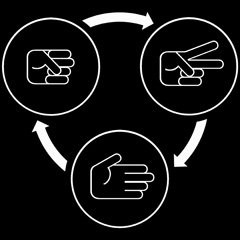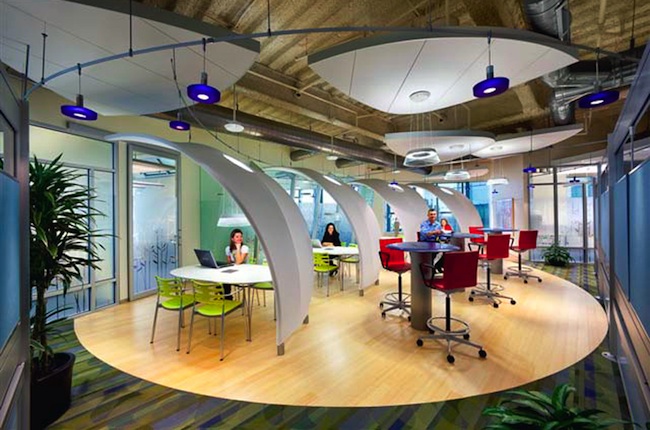2012 Rewind: On Culture, Strategy, and Talent
Note: I am winding down the last, waning days of 2012 by re-running a few posts from this year that either I liked, were (reasonably) popular, or just didn't get a fair shake the first time around. If that is not your sort of thing, then come back on January 2, 2013 when fresh and tasty content resumes. Thanks for reading in 2012!
First up, a post from February on Culture, Strategy, Talent and Rock, Paper, and Scissors.
-------------------------------------------------------------------------
If Culture Eats Strategy, then what Eats Culture?
I still play Rock-Paper-Scissors.
For a simple game, it is incredibly nuanced and complex. Like all good games, there is no sure way to win, and no sure way to lose. Some day I hope to hone my skills to the point where I can compete for big bucks on the R-P-S circuit.
Why mention Rock-Paper-Scissors?  Choose wisely
Choose wisely
It came to mind from thinking about two things - one, another run around the park for the popular 'Culture Eats Strategy' meme, (ok, it is not really a meme, I just couldn't think of a better word. Sorry.). This line of thought posits that without the 'right' or 'good' or 'well managed' company culture, that it does not really matter much what the business strategies are, that decreased or lacking employee engagement levels caused by that poor culture will effectively short-circuit and lead to failure even the best, most intelligent strategies. It makes plenty of sense, is fairly hard to argue against, and tends to play to the part of us that simply likes to believe if we create great places to work, great experiences, and happy/engaged/satisfied employees that everything else might just fall into place.
But like the Rock-Paper-Scissors game, that is non-linear, and where any choice you make can potentially be trumped by another choice, is it possible that while Culture may eat Strategy, that there might be something out there that might eat Culture?
How about Talent?
A few days ago mega fast food franchise company Yum! Brands, (think, Pizza Hut, KFC, Taco Bell), announced its latest quarterly earnings, and one of the highlights was the company's strong growth and performance in China, with an expansion of locations and same-store sales up 21% on the quarter. On the quarterly earnings call, Yum! CEO David Novak was asked about the company's successes in the often difficult to crack Chinese market, and his explanation of the reasons behind this excellent performance curiously did not attribute it at least primarily to some kind of superior business strategy, or wonderful organizational culture. No, he talked about Talent. From the transcript of the earnings call:
I think our whole formula for success in China has been geared on great local management team with phenomenal local operating capability. And we've always had one rule, we never want to expand any further than or faster than our people capability.
But we're like the Procter and Gambles, the king of marketing talent in the United States. We see ourselves as the leader in operating talent in China. The second big thing on people capability is just our development operations. Our development team -- we have 700 people in our development team. And we have the best retail management base in China. This is a huge competitive advantage as we go forward.
Let that sink in a minute. People capability. The leader in operating talent. The main reason Yum! is winning in China.
Later in the discussion Novak does talk about the importance of flagship locations, and arriving first to local markets, both clearly business strategy type decisions, but the overall emphasis and the main reason for success and ongoing competitive advantage is finding, developing, and pipelining great local managerial talent.
Talent. Not culture, not strategy, not some innovative marketing or social media outreach.
It is a very interesting take, and I'd recommend reading the full transcript of the earnings call, (come on, you have time, lay off Facebook for ten minutes).
What do you think - if culture eats strategy, could it be that talent eats them both?

 Steve
Steve
